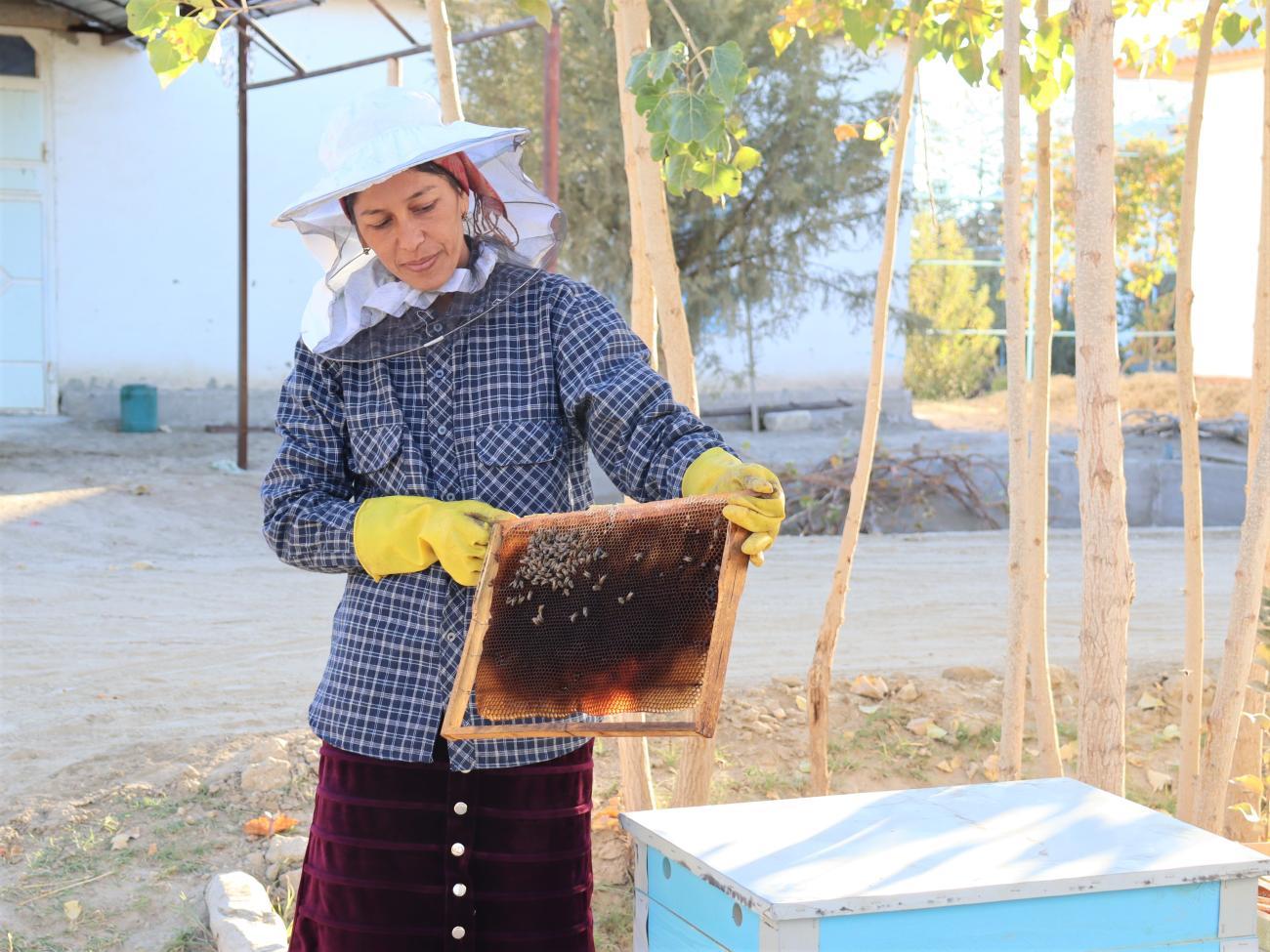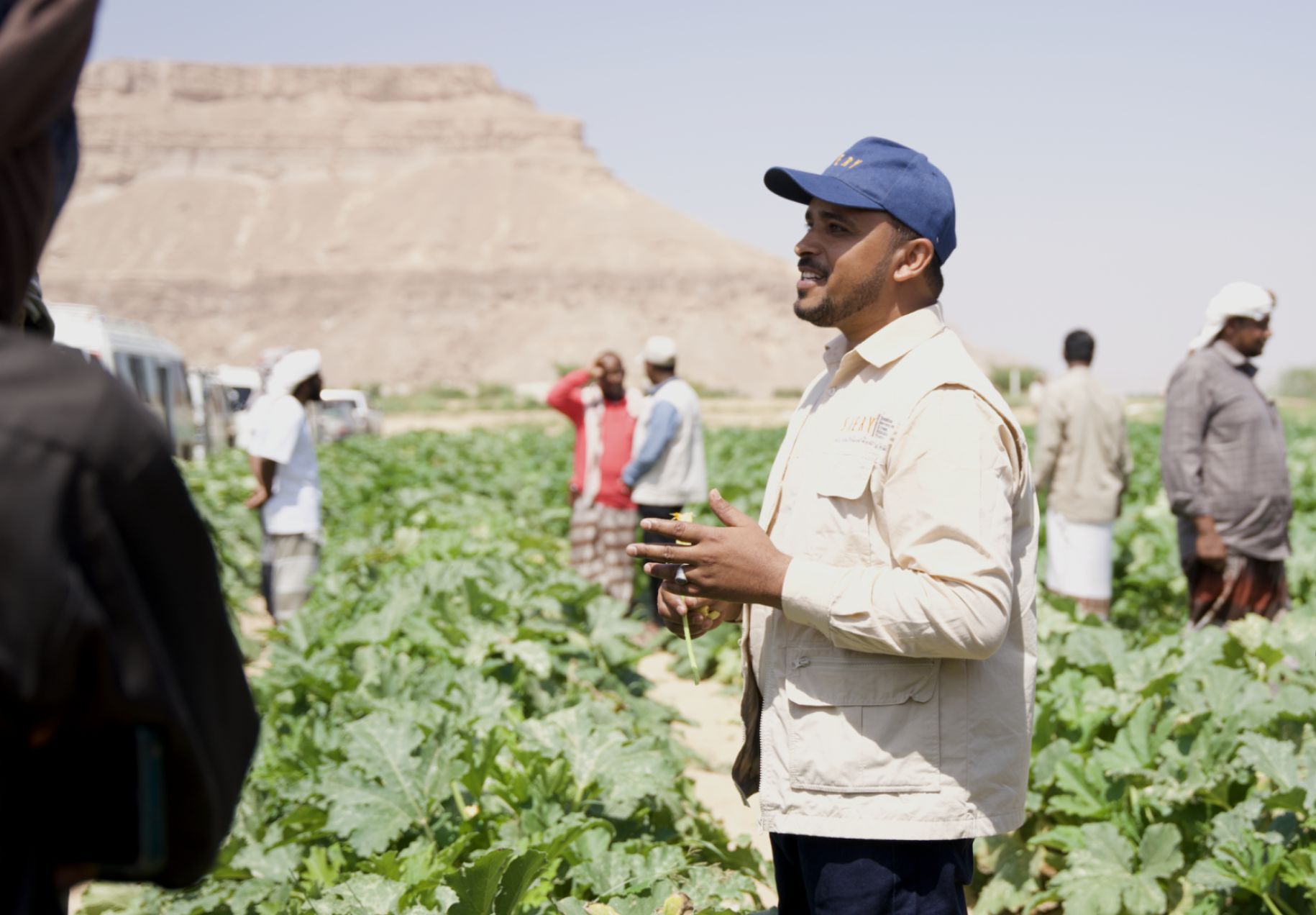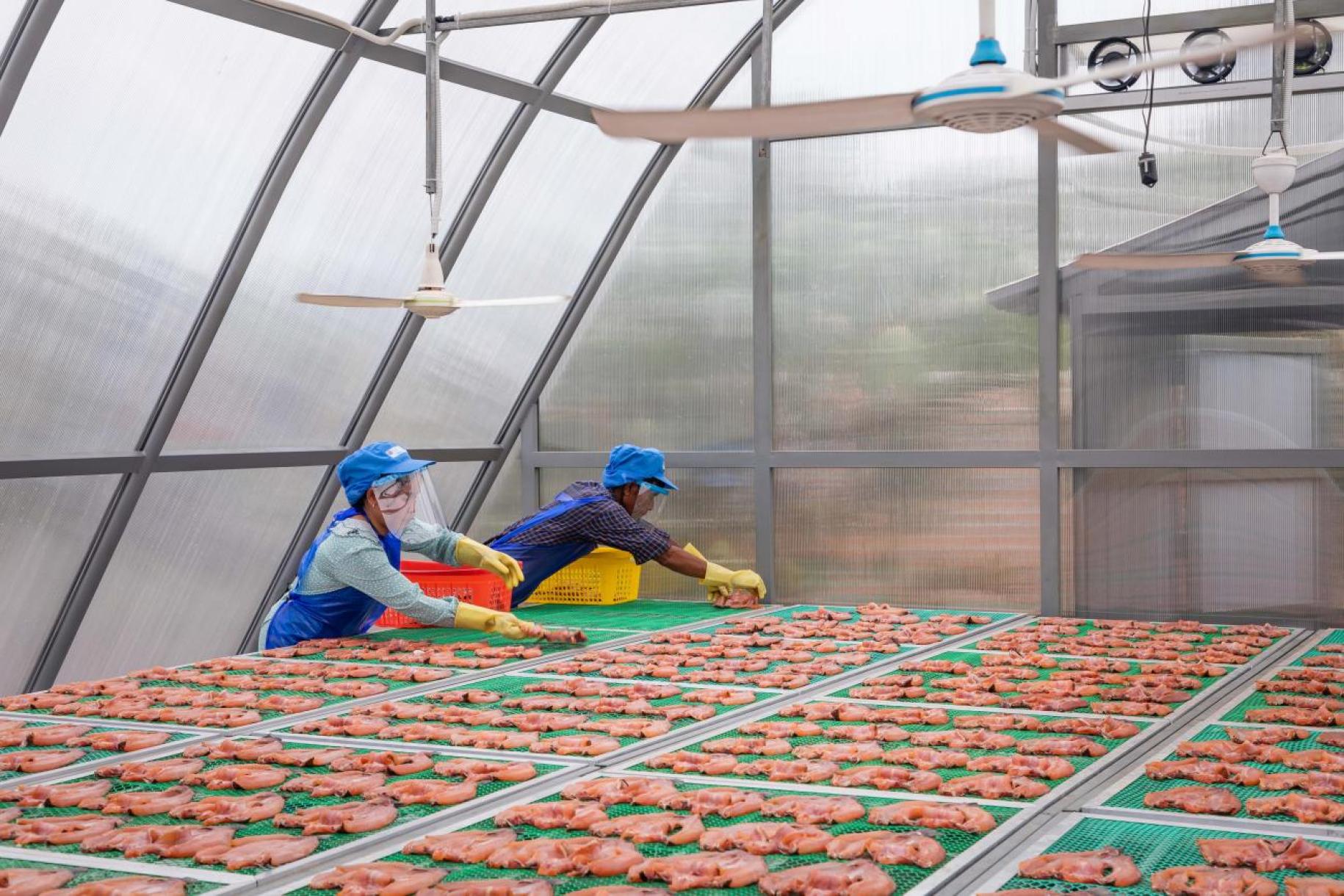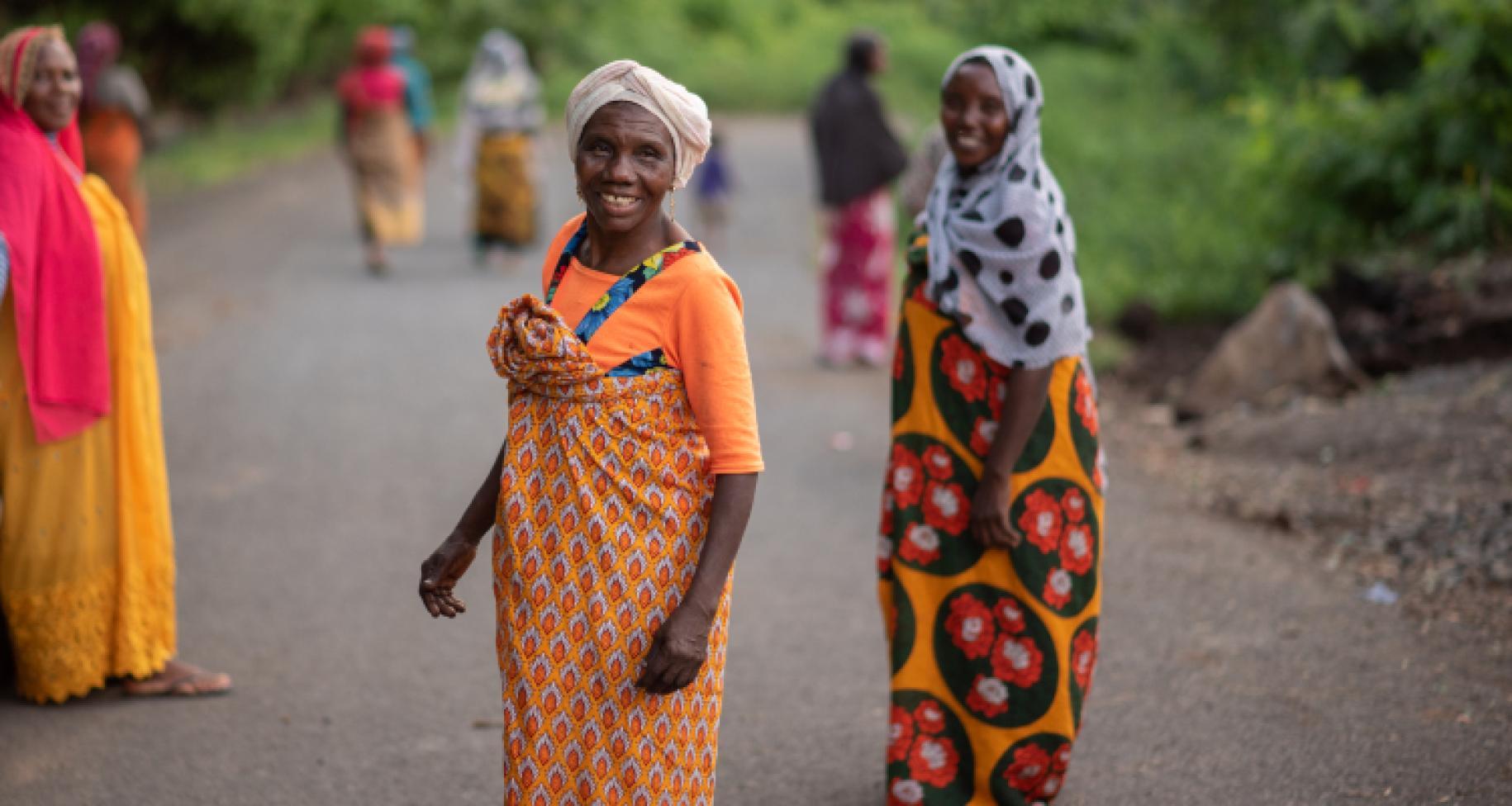Moving the needle on the SDGs

Nearly eight years ago, global leaders set out a blueprint for the future- the 2030 Sustainable Development Agenda- and with it, made a resounding commitment to build a more equitable, sustainable and prosperous world.
Yet, at the half-way mark to 2030, unprecedented conflicts, devastating climate shocks, mounting debt crises in over 60% of low-income developing countries and the lingering effects of COVID-19 are threatening to impede progress towards achieving the Sustainable Development Goals.
Doubling down on an inclusive recovery and recommitting to the Sustainable Development Goals is the only way out of these interlinked crises. The UN High-Level Political Forum, taking place this week in New York in the run up to September’s SDG Summit, offers a crucial platform to assess the progress thus far and, share and learn from the transformative policies and investments across countries that are helping regain lost ground.
This year, 39 countries and the European Union will present their Voluntary National Reviews (VNRs)- a stock-take of the experiences and lessons learned in implementing the 2030 Agenda for Sustainable Development.
This year, five goals take center-stage: SDG 6 on clean water and sanitation, SDG 7 on affordable and clean energy, SDG 9 on industry, innovation and infrastructure, SDG 11 on sustainable cities and communities and SDG 17 on partnerships for the goals.
Here is a snapshot from five different countries on how they are moving the needle on these five goals under review:
SDG 6: Conserving clean water for agriculture in Yemen
Water scarcity and climate change is exacting a heavy toll on Yemen’s agricultural sector. Seasonal floods, extreme heatwaves are threatening farmlands, livelihoods and lives of rural Yemenis, who are already struggling with protracted conflicts and collapse of basic services. A joint project between UNDP and the European Union is engaging local actors in better agricultural planning and is introducing them to modern irrigation methods to help conserve water while preserving crop yields and boosting productivity. Farmers are now beginning to see water savings of nearly 40 to 80 per cent, while their own production costs are being lowered. This simple shift is expected to have wide impacts across agricultural value chains in other governorates. Read more about how working towards Goal 6 on clean water and sanitation can have a jumpstarter effect on other goals in Yemen too.

SDG 7: Clean energy solution for fish drying in Cambodia
In Cambodia fish is a favoured delicacy. Local fish processors typically dry their fish under the sun, or by burning firewood or coal. Every Cambodian recognizes the sight and smell of fish being dried in the traditional way. But often, these traditional methods are unhealthy, inefficient and unsustainable. A new solar-powered “dryer dome” and ventilator is stirring a small revolution, with the help of UNIDO, Cambodia’s Fisheries Administration and the European Union. This clean energy run dome is a faster dryer and emits zero pollutants leading to more efficient fish processing, cleaner air and healthier people. This innovation is currently being tested across ten processing enterprises and is poised to be scaled up among more. Learn more about this simple energy solution is bringing greater economic benefits to Cambodians.

SDG 9: Tapping into new industries and investments for Comoros
In February 2023, the Union of Comoros ratified the African Continental Free Trade Area (AfCFTA). Joining this pan-African agreement brings the promise of greater economic growth, industrialization, strengthened business in key sectors like tourism and ultimately, reduction in poverty levels. Yet in this highly import-dependent country, officials were initially concerned about adverse impacts- like the loss of customs revenue, the UN in Comoros, under the leadership of the Resident Coordinator, worked closely with officials and development partners to encourage informed decision-making and mobilize the political leadership that could make the ratification a reality. The UN organized a series of national and local consultations, working with stakeholders to identify investment opportunities with the AfCFTA and further, develop a national implementation strategy. Learn from the UN Resident Coordinator about how different UN entities worked together to raise awareness of the benefits of the AfCFTA and cultivate an environment for inclusive and sustainable development for Comoros in the years to come.

SDG 11: Sustainable communities in Uzbekistan
In a village in the Bukhara region of southern Uzbekistan, Gulhaya Khaydarova and her family have spent decades in the beekeeping business, passing sustainable traditions down from generation to generation. Last winter with temperatures dropping, a significant part of their bee colonies died and their incomes shrunk. With the support of FAO, the Khaydarov family has been able to expand their apiary and create about 40 new bee colonies. In addition to the increased production, modern equipment provided by the project has accelerated the process of obtaining honey and the additional honey extractors mean that three people can work at once. Increased production means better income and providing a more sustainable livelihood for the household. In addition, extensive training programme provided to other farming households in the area, is helping increase awareness on growing crops, developing various crafts, creating nurseries in greenhouses, processing milk and other animal products and developing beekeeping. Read more about how the UN is supporting sustainable communities in Uzbekistan here.
SDG 17: Partnerships to create inclusive learning environments across Mexico
In Mexico, UNESCO has partnered with the Alberto Baillères Foundation to transform educational environments across the country by promoting improvements in infrastructure and helping make school spaces more conducive to student well-being and development.
This project, called the “Social Model’ was first proposed and implemented by the Foundation in 2018. Five years later it has benefitted more than 34, 000 people in three states across Mexico with more collaborative and inclusive learning environments. UNESCO has been closely supporting the Social Model project and monitoring the impact of its interventions. In June 2023, UNESCO presented a report outlining some key lessons learned and identifying challenges ahead, including on the need to ensure these innovations to learning spaces are sustainable and can be self-managed by the community over the long term.
Thanks to the strength of this partnership, the Social Model is now expanding its reach to create more dignified, safe and inclusive learning spaces across the country. Learn more here.













